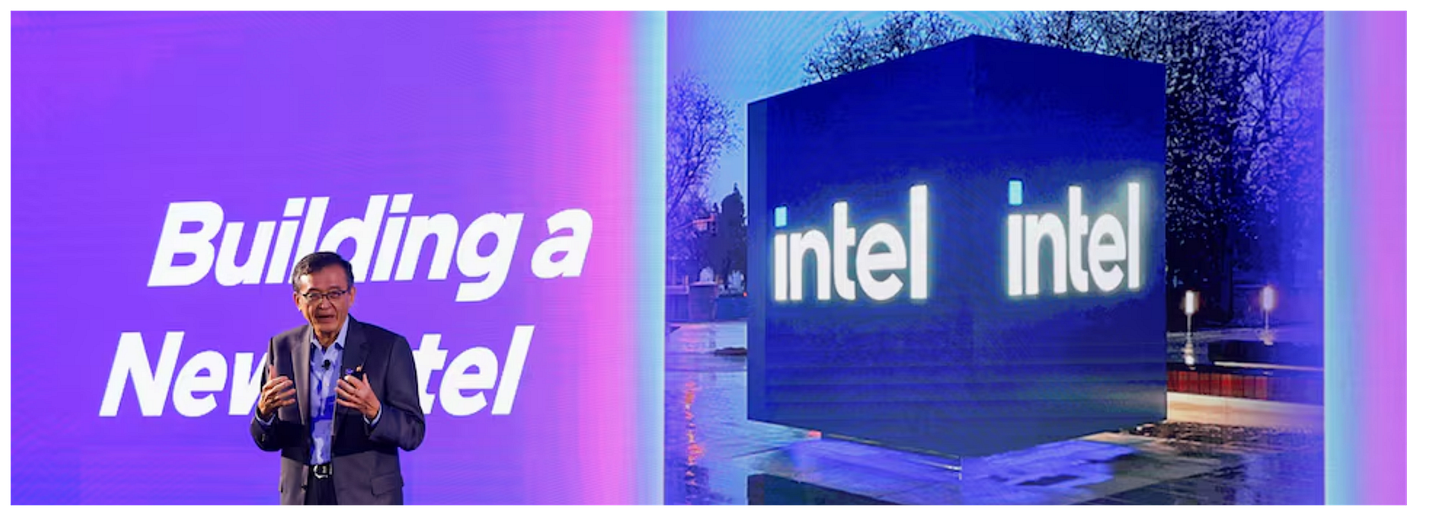Good morning. It’s Tuesday, May 20. Today we are covering:
The Windows Subsystem for Linux is now open source
The Tech Industry Is Huge-and Europe's Share of It Is Very Small
China's Effort to Build a Competitor to Starlink Is Off to a Bumpy Start
Intel explores sale of networking and edge unit, sources say
GitHub, Microsoft embrace Anthropic's spec for connecting AI models to data sources
Let’s dive in
The Windows Subsystem for Linux is now open source
By Pierre Boulay via Windows Developer Blog
Microsoft has open-sourced the Windows Subsystem for Linux (WSL), making its core components—including command-line tools, VM services, and Linux-side daemons—available on GitHub for community development and contributions.
WSL’s development journey spans from its 2016 debut to today’s 2.5.7 release, with key milestones including WSL 2’s introduction in 2019, its move to the Microsoft Store in 2021, and major feature additions like systemd, GUI support, and firewall integration.
Not all components are open-source yet—notably Lxcore.sys (WSL 1 kernel driver) and P9rdr.sys/p9np.dll (Windows-to-Linux filesystem redirection)—but Microsoft aims to accelerate innovation by enabling direct community collaboration on WSL’s core.
𝕏: Very proud to announce that the Windows Subsystem for Linux is now open source! - Craig Loewen (@craigaloewen)
The Tech Industry Is Huge-and Europe's Share of It Is Very Small
By Tom Fairless via Wall Street Journal
Europe lacks global tech giants like Google, Amazon, or Meta, and has failed to produce competitive homegrown alternatives.
The market value of Apple alone now surpasses that of the entire German stock market, underscoring Europe’s lag in the tech economy.
This technological shortfall is contributing to economic stagnation across Europe and may worsen with the threat of higher tariffs on the horizon.
𝕏: Europe has fallen way behind in the race to create big tech firms—and that’s a major challenge for its future. And it's not just tech: Europe isn’t creating its share of new, disruptive companies that shake up markets and spur innovation. - David Luhnow (@davidluhnow)
The best way to reach new readers is through word of mouth. If you click THIS LINK in your inbox, it’ll create an easy-to-send pre-written email you can just fire off to some friends.
China's Effort to Build a Competitor to Starlink Is Off to a Bumpy Start
By Zeyi Yang via WIRED
China's Guowang and Qianfan satellite constellations, aimed at rivaling SpaceX’s Starlink, have launched over 100 satellites but are facing delays, faulty hardware, and bureaucratic inefficiencies that threaten their ability to meet ITU deployment deadlines.
Qianfan, which targets international markets, has struck deals with countries like Brazil, Malaysia, and Thailand, but is struggling with a high failure rate among satellites—13 of 90 showing irregular behavior—and lacks the reusable rocket infrastructure that gives Starlink a cost and speed edge.
While Guowang focuses on domestic and military uses, including possible operations around Taiwan, Qianfan is leveraging global dissatisfaction with Elon Musk’s control over Starlink to pitch itself as a more transparent, telecom-friendly alternative in emerging markets.
Intel explores sale of networking and edge unit, sources say
By Max A. Cherney via Reuters
Intel is exploring a potential sale of its networking and edge (NEX) unit, as new CEO Lip-Bu Tan aims to refocus the company on its core strengths in PC and data center chips.
Although no formal sale process has been launched, discussions are underway with potential third parties, and investment bankers have been interviewed as part of early-stage planning.
The NEX group, which generated $5.8 billion in 2024, is seen as nonessential under Tan’s strategy, especially amid market dominance by rivals like Broadcom and Intel's recent business divestitures, including Altera.
GitHub, Microsoft embrace Anthropic's spec for connecting AI models to data sources
By Kyle Wiggers via TechCrunch
GitHub and Microsoft have joined the steering committee for Anthropic's Model Connection Protocol (MCP), a standard for linking AI models to external data sources, with plans to offer deep integration across Microsoft Azure and Windows 11.
The MCP standard, already embraced by OpenAI and Google, allows developers to expose data and app functionalities via “MCP servers” and build interactive AI applications through “MCP clients.”
Microsoft and GitHub are contributing to MCP's development, including a secure authorization spec for trusted sign-ins and a registry service enabling discovery and management of MCP server implementations.
We're thrilled to bring you ad-free news. To keep it that way, we need your support. Your pledge helps us stay independent and deliver high-quality insights while exploring new ideas. What would you love to see next? Share your thoughts and help shape the future of Newslit Daily. Thank you for being part of this journey!
Trending in AI
AI Can Beat You in a Debate When It Knows Who You Are, Study Finds
Baiont’s Feng Ji: Quant managers who don’t adopt AI will be eliminated by the market
Qualcomm to launch data center processors that link to Nvidia chips
Thanks for reading to the bottom and soaking in our Newslit Daily fueled with highlights for your morning.
I hope you found it interesting and, needless to say, if you have any questions or feedback let me know by hitting reply.
Take care and see you tomorrow!
How was today’s email?



















Share this post